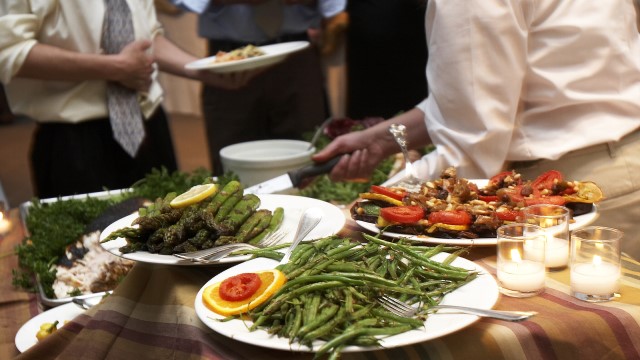The pandemic’s impact on the foodservice industry has been cataclysmic, with venues in Victoria still forced to operate on a takeaway and/or deliver basis only under the state’s Covid-19 restrictions. But a more frightening trend in the longer-term is the reduction in people eating out post-lockdown, and the plummet in office workers grabbing lunch in CBDs around the country. The trickle down effect on food distributors and farmers has been devastating. A new industry body repres
body representing food distributors, known as Independent Food Distributors Australia, has formed to highlight the issues they are facing and lobby the government for better support.
Richard Forbes, executive officer – Independent Food Distributors Australia (IFDA), told Inside Retail that there is a lack of acknowledgment or understanding by the states and the federal government of the role family-owned food distributors have played during the pandemic.
“I have no doubt that the majority of politicians do not have as good enough understanding as they should have about the role of independent foodservice distributors in this country,” he said.
Hospitality and food distribution services have leaned heavily on government support such as JobKeeper to stay afloat during the pandemic, and many are fearful of how they will cope without them.
“JobKeeper has been the savior of many jobs in small businesses across the country, and it was welcome news that it will be extended until March next year,” he said.
“However, the criteria is getting tighter and tighter. We believe that the food hospitality and food service distribution sector should be looked on favourably by the federal government, in terms of the criteria being much more flexible.”
Consumption-led recovery
IFDA is backing a scheme put forward by Restaurant and Catering Australia which would see every household in Victoria receive a voucher to spend at local eateries under a
$650 million plan to save the state’s hospitality industry.
Forbes said a “consumption-led recovery” benefits everyone involved in the food supply chain from local manufacturers, farmers and suppliers, to independent food distributors.
“The ‘Eat Out to Help Out’ campaign was something that was initiated in the UK and picked up by the restaurant hospitality association in Victoria. We think it should go national. There should be an incentive given to the public to go out, by way of vouchers, to support their local club, pub and restaurant.”
‘Opportunistic’ behaviour of supermarkets
With the threat of financial support being pulled in the near future, IFDA has been vocal about another looming threat to the industry, the advent of a major player: Woolworths.
The supermarket is currently awaiting approval from Australia’s competition watchdog, ACCC, to acquire a 65 per cent stake in food and grocery supplier PFD Food Services.
IFDA members feel that the supermarket’s entry into the market is “opportunistic and aggressive”.
“They are now aggressively going into the market space. Our members have really been impacted so severely over the past six months and Woolworths has been one of the biggest beneficiaries out of this pandemic. They’ve made well over a billion dollars in profit, while our members have lost much of their revenue,” Forbes said.
Much of the food distribution industry comprises family-owned businesses that support local manufacturers and suppliers in the bush, as well as the city, according to Forbes.
“When we are impacted, suppliers are impacted, farmers are impacted; it goes right through the food supply chain.”
The big concern for the IFDA is the power Woolworths would have in the market and the rate at which it can grow.
“If you look at the trend of how their liquor market has expanded over the last 20-30 years, you get an idea of what they might do in the foodservice area. Liquor has expanded to 50-60 per cent of the market.
“They say that they’re only going to be a small percentage. We believe that if they say they’re going to increase from $250 million to $1 billion in the B2B space in three years, it’s probably gonna be a lot higher than that based on historical trends in other areas that they’ve gone into like liquor.”
There are five large national operators and hundreds of smaller providers in the foodservice industry, with PFD sitting at number two nationally, with around 11 per cent share of sales.
A Woolworths spokesperson told Inside Retail that its investment in PFD Foods won’t reduce competition, but in fact add to competition on service levels across the industry.
“Foodservice is a highly fragmented market, with a wide range of providers underpinning strong competition and choice for customers.
“Our investment won’t reduce the choice customers have in who they source their foodservice products from – nor the number of foodservice players that suppliers can partner with to get their products to market.”
PFD will continue to be run as a separate business with the same management and Kerry Smith is staying on as company CEO, under a separate governance structure.
Future of foodservice
Forbes told Inside Retail that IFDA is keeping fingers crossed that the ACCC “does the right thing” by the Woolworths decision.
“There are many other people in organisations, other than food distributors that will be impacted if this PFD Foods acquisition goes through.
“We just call on the ACCC to look very carefully at what impact this acquisition might have right through the food supply chain.”
Should the deal be approved and if the government fails to put the adequate support in place to help these businesses in the long-term, Forbes fears that the industry may not fully recover.
“It’s very hard to know what the future will look like because so many businesses like the food distribution sector have lost tens of thousands of dollars’ worth of stock that they will never recoup.
“The impact of what has happened will last for years while businesses try to get back on their feet.”

